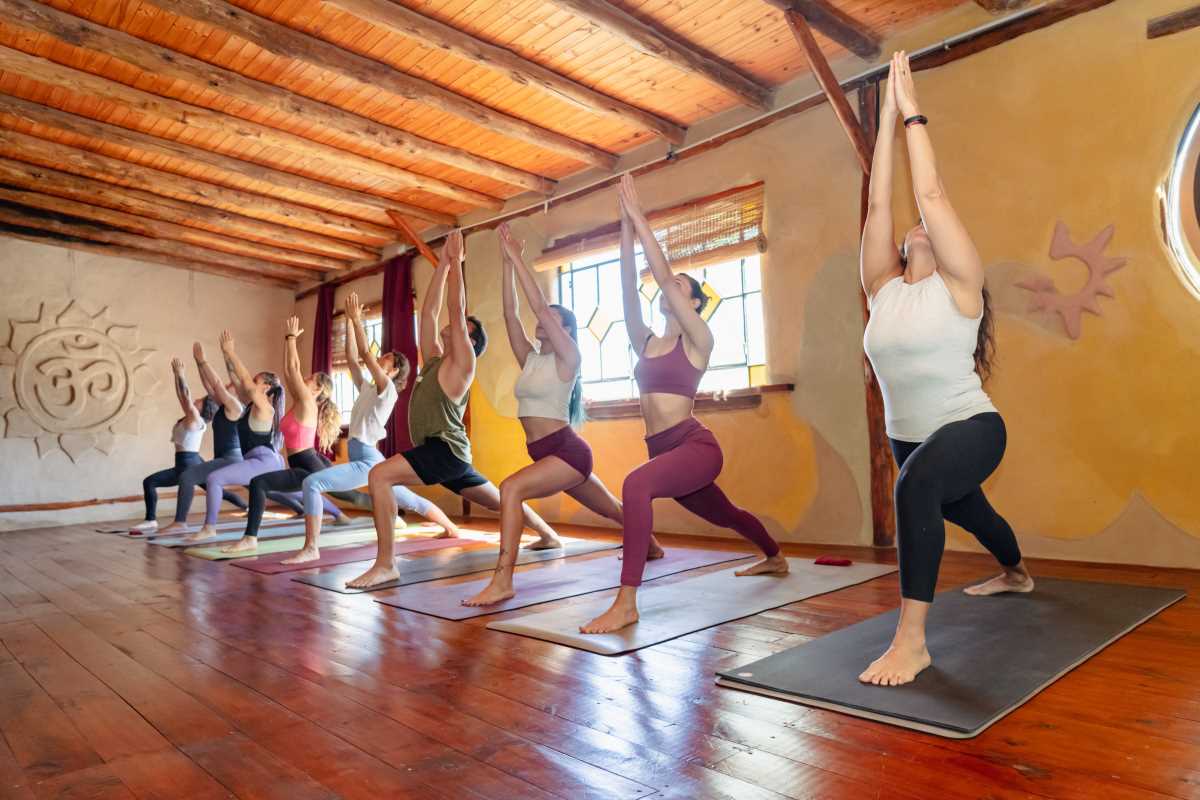Leading a healthy life means taking care of your body from the inside out. One crucial aspect of overall health is circulation. Poor circulation can lead to various health issues, such as numbness, fatigue, and even more serious conditions. By making simple lifestyle changes, you can boost your circulation and improve your overall well-being. Let's explore in detail how you can enhance your circulation through various lifestyle modifications and habits.
Moving More Throughout the Day
Sitting for extended periods can lead to decreased blood flow, affecting circulation. Make it a point to move more throughout the day, whether it's taking short walks, stretching, or incorporating regular exercise into your routine. By staying active, you can help promote better circulation throughout your body.
The human body is designed for movement, and our circulatory system functions optimally when we're active. Extended periods of inactivity can lead to sluggish blood flow, increasing the risk of blood clots and other circulatory issues. To combat this, try implementing the following strategies:
1. Set reminders to stand up and move every hour if you have a sedentary job.
2. Take the stairs instead of the elevator when possible.
3. Park your car farther away from your destination to incorporate more walking into your day.
4. Use a standing desk or treadmill desk if your work environment allows it.
5. Take phone calls while walking or pacing instead of sitting.
6. Incorporate desk exercises or stretches during your workday.
Regular exercise is also crucial for maintaining good circulation. Aim for at least 150 minutes of moderate-intensity aerobic activity or 75 minutes of vigorous-intensity aerobic activity per week. Activities such as brisk walking, jogging, cycling, swimming, or dancing can all help improve circulation. Additionally, strength training exercises can help build muscle mass, which in turn supports better blood flow.
Eating Heart-Healthy Foods
Your diet plays a significant role in your circulatory health. Consuming foods rich in antioxidants, such as fruits and vegetables, can help reduce inflammation and improve blood flow. Incorporating heart-healthy fats like those found in nuts, seeds, and fish can also support overall circulation.
A diet that promotes good circulation should focus on:
1. Fruits and vegetables: These are rich in vitamins, minerals, and antioxidants that help protect blood vessels and promote healthy blood flow. Aim to include a variety of colorful produce in your diet, such as berries, leafy greens, citrus fruits, and bell peppers.
2. Whole grains: Foods like brown rice, quinoa, oats, and whole wheat bread provide fiber and nutrients that support heart health and circulation.
3. Lean proteins: Choose sources like fish (especially fatty fish rich in omega-3s), poultry, legumes, and lean cuts of meat to support overall health and circulation.
4. Healthy fats: Incorporate sources of monounsaturated and polyunsaturated fats, such as avocados, nuts, seeds, olive oil, and fatty fish, which can help reduce inflammation and support cardiovascular health.
5. Herbs and spices: Many herbs and spices, such as garlic, ginger, cayenne pepper, and turmeric, have natural blood-thinning properties and can help improve circulation.
6. Dark chocolate: In moderation, dark chocolate (70% cocoa or higher) can help improve blood flow due to its high flavonoid content.
Avoiding or limiting certain foods can also benefit circulation. Reduce your intake of:
1. Processed foods high in saturated and trans fats
2. Excessive salt, which can lead to fluid retention and increased blood pressure
3. Refined sugars and carbohydrates, which can contribute to inflammation
4. Alcohol, which can dehydrate the body and negatively impact circulation when consumed in excess
Staying Hydrated
Dehydration can have a negative impact on circulation, making it essential to stay hydrated throughout the day. Drinking an adequate amount of water helps maintain blood volume, allowing for better circulation. Aim to drink at least eight glasses of water daily to support optimal blood flow.
Proper hydration is crucial for maintaining healthy blood volume and viscosity. When you're well-hydrated, your blood can flow more easily through your blood vessels, delivering oxygen and nutrients to your cells more efficiently. Here are some tips to help you stay hydrated:
1. Carry a reusable water bottle with you throughout the day as a reminder to drink water regularly.
2. Set reminders on your phone or computer to prompt you to drink water at regular intervals.
3. Eat water-rich foods like cucumbers, watermelon, and tomatoes to supplement your fluid intake.
4. Flavor your water with fresh fruits or herbs if you find plain water unappealing.
5. Monitor the color of your urine – pale yellow indicates good hydration, while dark yellow suggests you need to drink more water.
6. Increase your water intake during hot weather or when engaging in physical activity.
While water should be your primary source of hydration, other beverages like herbal teas, coconut water, and low-fat milk can also contribute to your daily fluid intake. However, be cautious with caffeinated beverages and alcohol, as they can have a diuretic effect and potentially lead to dehydration if consumed in excess.
Managing Stress Levels
High-stress levels can contribute to poor circulation by constricting blood vessels. Finding ways to manage stress, such as practicing mindfulness techniques, deep breathing exercises, or engaging in hobbies you enjoy, can help relax your body and promote better circulation.
Chronic stress can have a significant negative impact on your circulatory system. When you're stressed, your body releases hormones like cortisol and adrenaline, which can cause your blood vessels to constrict and your heart rate to increase. Over time, this can lead to high blood pressure and other circulatory issues. To manage stress and support healthy circulation, consider incorporating the following practices into your daily routine:
1. Meditation: Regular meditation practice can help reduce stress and promote relaxation. Even just 10-15 minutes a day can make a significant difference.
2. Deep breathing exercises: Techniques like diaphragmatic breathing or the 4-7-8 breathing method can help activate your body's relaxation response and improve circulation.
3. Yoga: Combining physical postures, breathing techniques, and meditation, yoga can be an excellent way to reduce stress and improve circulation.
4. Progressive muscle relaxation: This technique involves tensing and then relaxing different muscle groups in your body, promoting overall relaxation and improved blood flow.
5. Engaging in hobbies: Participating in activities you enjoy can help take your mind off stressors and promote relaxation.
6. Spending time in nature: Studies have shown that spending time outdoors in natural environments can help reduce stress levels and promote overall well-being.
7. Social connections: Maintaining strong social relationships and seeking support from friends and family can help buffer the effects of stress.
8. Time management: Organizing your time effectively can help reduce feelings of overwhelm and stress.
Improving Posture
Poor posture can impede circulation, especially in areas like the legs and feet. Pay attention to your posture throughout the day, whether sitting at a desk or standing for long periods. Maintaining good posture can help prevent blood from pooling in certain areas, supporting healthy circulation.
Good posture not only helps prevent muscle strain and back pain but also supports proper blood flow throughout your body. When you maintain good posture, you allow your blood vessels to function optimally, reducing the risk of circulation problems. Here are some tips to improve your posture:
1. When sitting:
- Keep your feet flat on the floor or use a footrest.
- Maintain a small gap between the back of your knees and the chair.
- Keep your knees at or below hip level.
- Maintain a slight arch in your lower back, using a lumbar support if needed.
- Keep your shoulders relaxed and your elbows close to your body.
- Position your computer screen at eye level to avoid neck strain.
2. When standing:
- Keep your weight balanced evenly on both feet.
- Engage your core muscles to support your spine.
- Keep your shoulders back and your chest open.
- Tuck your chin slightly to maintain proper neck alignment.
3. When sleeping:
- Use a supportive mattress and pillow that maintain proper spinal alignment.
- If you sleep on your side, place a pillow between your knees to keep your spine aligned.
- If you sleep on your back, place a small pillow under your knees to reduce lower back strain.
4. Incorporate posture-strengthening exercises into your routine, such as planks, bird dogs, and shoulder blade squeezes.
5. Use ergonomic furniture and tools designed to support good posture, such as ergonomic chairs, standing desks, or keyboard trays.
6. Take regular breaks to move and stretch, especially if you spend long periods sitting or standing in one position.
Getting Sufficient Sleep
Quality sleep is crucial for overall health, including circulation. During sleep, your body repairs and rejuvenates itself, supporting optimal blood flow. Aim for seven to nine hours of quality sleep each night to help your body function at its best and promote healthy circulation.
Sleep plays a vital role in maintaining good circulation and overall cardiovascular health. During deep sleep stages, your body undergoes important restorative processes, including the repair and regeneration of blood vessels. Additionally, your blood pressure naturally drops during sleep, giving your cardiovascular system a chance to rest and recover.
To improve your sleep quality and duration, consider the following tips:
1. Establish a consistent sleep schedule: Try to go to bed and wake up at the same time every day, even on weekends.
2. Create a relaxing bedtime routine: Engage in calming activities like reading, gentle stretching, or listening to soothing music before bed.
3. Optimize your sleep environment:
- Keep your bedroom dark, quiet, and cool.
- Use comfortable bedding and pillows.
- Consider using blackout curtains or a white noise machine if needed.
4. Limit exposure to blue light: Avoid screens (phones, tablets, computers) for at least an hour before bedtime, or use blue light filtering apps or glasses.
5. Be mindful of your diet:
- Avoid large meals close to bedtime.
- Limit caffeine intake, especially in the afternoon and evening.
- Avoid alcohol before bed, as it can disrupt sleep quality.
6. Exercise regularly, but not too close to bedtime: Regular physical activity can improve sleep quality, but intense exercise too close to bedtime may make it harder to fall asleep.
7. Manage stress: Practice relaxation techniques like meditation or deep breathing before bed to calm your mind.
8. Consider natural sleep aids: Herbal teas like chamomile or valerian root, or supplements like melatonin (under the guidance of a healthcare professional), may help improve sleep quality.
9. Address sleep disorders: If you consistently have trouble sleeping or suspect you might have a sleep disorder like sleep apnea, consult with a healthcare professional for proper diagnosis and treatment.
Final Thoughts
By making these simple lifestyle changes, you can enhance your circulation and support your overall health. Prioritizing movement, a balanced diet, hydration, stress management, posture, and adequate sleep can all contribute to better circulation and a healthier you. Remember that improving circulation is a holistic process that involves various aspects of your lifestyle. By consistently implementing these changes, you can support your body's circulatory system and enjoy the benefits of improved overall health and well-being.
It's important to note that while these lifestyle modifications can significantly improve circulation for many people, persistent circulation problems may indicate underlying health issues. If you experience ongoing symptoms of poor circulation, such as cold extremities, numbness, or tingling, it's essential to consult with a healthcare professional for a proper evaluation and personalized advice.
By taking a proactive approach to your circulatory health through these lifestyle changes, you're not only improving your blood flow but also investing in your long-term health and quality of life. Start implementing these changes gradually, and over time, you'll likely notice improvements in your energy levels, overall comfort, and general well-being as your circulation improves.
 (Image via
(Image via





